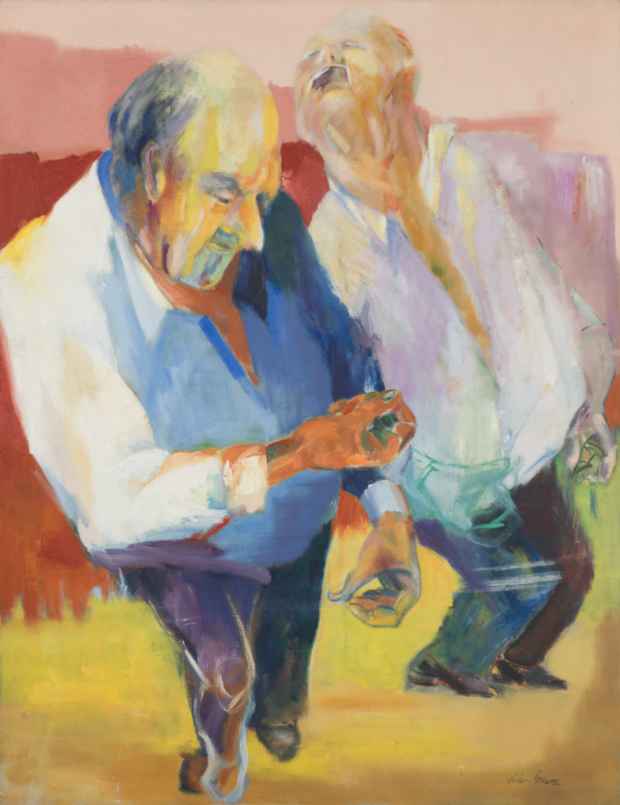Vivian Browne “Little Men, 1966-70”
RYAN LEE

This event has ended.
RYAN LEE presents Little Men, 1966-1970, its first exhibition of the work of Vivian Browne (1929-1993). Browne is part of an important generation of African American women artists of the mid-twentieth century whose powerful, socio-politically driven work defined an era of activism and transformation in American art. Like many of her contemporaries, recognition for Browne is long overdue- a fact further underscored by the unsettling relevance of her work some fifty years after its creation.
Browne’s Little Men were a political statement. They were the product of a lifetime spent enduring the inequities of life in a patriarchal society. Browne had been an active force during the civil rights movements of the 1960s and 1970s, serving on the executive committee of the Black Emergency Cultural Coalition (BECC), co-founding the feminist cooperative gallery SOHO 20, and participating in the editorial collective that produced a special issue of the feminist journal Heresies, which grappled with racism within the feminist movement. She described the forces that generated Little Men to Henri Ghent in a 1968 interview: “[t]here were some things in my life that I had always tried to skirt over and not make important, but they became so important that I couldn’t overlook them any more. One was the fact of being a female in a male society.” And though, as Browne discussed with friend and fellow artist Emma Amos in 1985, Little Men didn’t obviously align with what she understood as the black art of the period, Browne was indeed engaging in a painterly form of activism. She explained that “[d]uring the Civil Rights Era, one had to paint black themes, black people, black ideas. I didn’t…I was painting my kind of protest, but it didn’t look like black art…Then, I was painting these little old white men.”
Though most works in the series are simply numbered, titles like Wall Street Jump (1969) reveal that these little men are likely big wigs, executives, who, despite their inheritance of white male privilege, remain unsatisfied and are incapable of controlling their anger, outbursts, and impulses. The image of Browne in her studio thoughtfully composing each of these paintings, making nearly one hundred related drawings, echoes the endurance that women-particularly women of color-have long cultivated in the face of such privilege and inequity.
Vivian Browne (1929 Laurel, FL - 1993 New York, NY) was an American artist known for her sociopolitical portraits and abstract paintings inspired by her travels. Browne received numerous awards throughout her life, including a MacDowell Colony Fellowship and recognition as a Distinguished Teacher of Art by the College Art Association. In 1986, Mayor Ed Koch of New York City honored her for her achievements in the arts, and in 1990, she served as a Fulbright Panelist. Browne’s work is held in numerous public collections including the Hatch-Billops Collection, Emory University, Atlanta; Museum of Modern Art, New York; Smithsonian American Art Museum, Washington, DC; Schomburg Center for Research in Black Culture, New York; and Wadsworth Atheneum, Hartford. Most recently, Browne was featured in Acts of Art and Rebuttal in 1971 (2018) at Hunter College, which revisited the 1971 protest exhibition organized by members of the Black Emergency Cultural Coalition in response to the Whitney Museum’s refusal to appoint a black curator for their survey Contemporary Black Artists in America. She was also included in the Brooklyn Museum’s exhibition We Wanted a Revolution: Black Radical Women 1965-85, which traveled to Albright- Knox Art Gallery, Buffalo and Institute of Contemporary Art, Boston (2017-2018).
Media
Schedule
from February 21, 2019 to March 30, 2019
Opening Reception on 2019-02-21 from 18:00 to 20:00